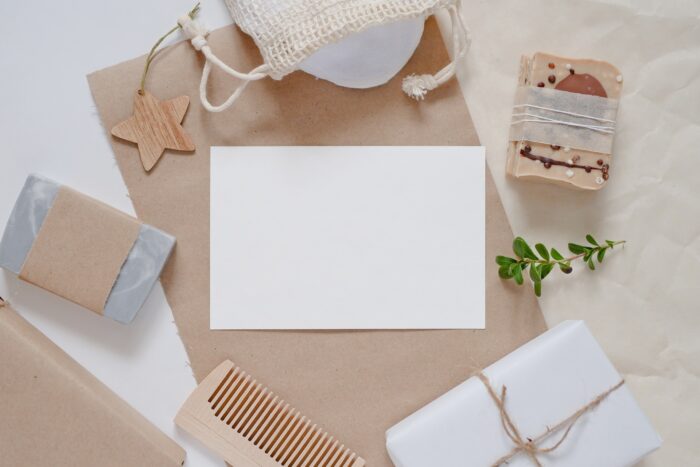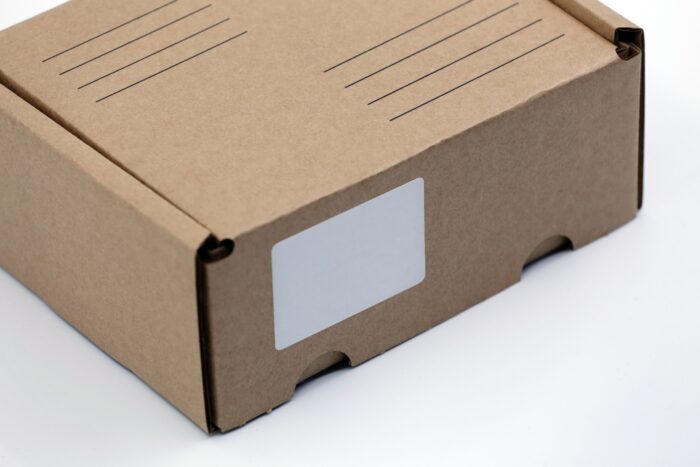No products in the cart.
Work From Home
Change: Plastic-Free Packaging Solutions for Your Business
Home Business Magazine Online
Sustainable packaging solutions for your business
In today’s consumerism world, being an eco-friendly and sustainable company is becoming increasingly important in attracting and maintaining a large customer base. More than ever, people align themselves with businesses that follow green business practices throughout their supply chain.
This need has pushed factors like eco-friendly packaging to the forefront of consumer demands, as it is the leading cause of landfill waste and single-use plastic. Of course, finding a sustainable alternative for your business needs may involve some trial and error. But with various solutions already proving to be a success, you can transition to green alternatives with confidence and peace of mind.
Biodegradable Packing Peanuts
British cosmetic giants Lush, famous for their eco-friendly, biodegradable and cruelty-free business model, has developed an innovative recyclable packing peanut made from a combination of water and a starch-based substance. As a result, not only can they be disposed of entirely in a nature-friendly manner, but 23% less energy is also needed to produce them.
With major cities like New York banning the use of styrofoam, which is predominantly used for takeaway containers and loose-fill packaging, finding a sustainable alternative is a non-negotiable for businesses operating in these areas.
Mushroom packaging
Mushroom packaging is created by a process in which agricultural waste is cleaned and grounded into a mixture that is fused together by a collection of mushroom roots, also known as mycelium. This raw material is then able to be molded into any desired shaped, dried and ultimately used as packaging.
Because agricultural waste cannot be used as a food source for humans or animals, this clever creation allows makers to use an otherwise useless by-product that can be composted at home and naturally degrades faster.
Photo by Mediamodifier on Unsplash
Green paper
Polyethene is the material currently used to coat more than half the paper used in global packaging. However, once applied to paper, it is no longer biodegradable, meaning that paper products containing this chemical are sent to landfills upon disposal.
The Miami-based company, J&J Green Paper, has developed a sustainable alternative called JANUS, a biodegradable, recyclable and compostable replacement for polyethene. This has proven to be a game changer throughout the cosmetic, agricultural, packaging and F&B industries. The raw material needed is widely available across the globe, and the application process is identical to that of polythene, meaning the production process transfer can be done with minimal effort and little supply chain disruption.
Corrugated Bubble Wrap
Bubble wrap is a popular packing material thanks to the cushioning support it gives fragile items during shipping as well as the fun of popping the bubbles once you don’t need it anymore. However, it is not an eco-friendly solution as it is wholly plastic-based.
The good news is that several sustainable alternatives are in the development stages, all designed to implement recycled materials and green manufacturing methods. One option gaining popularity is created by using up-cycled cardboard that is changed into a cushioning agent. This is achieved by making small cuts into post-consumer cardboard waste, creating a concertina effect that protects against shocks and bumps.
Organic textiles
For companies of all sizes, using ecological textile packaging will not only allow you to implement more environmentally friendly business practices, but it will add extra value to your products for your customers. For instance, you can design and implement reusable bags instead of single-use plastic bags, eliminating harmful material and extending the product’s usefulness.
Multiple organic fabrics are already available on the market, including hemp, recycled cotton, tapioca and palm leaves. Because these materials are biodegradable, they will avoid landfills and naturally decompose over time, unlike plastic, which eventually breaks down into microplastics, spoiling food chains and harming the health of both animals and humans.
Seaweed Packaging
Hailed as the next big thing in green packaging solutions, seaweed is a green solution that is manufactured using the gelatinous substance agar, found naturally in various seaweeds and algae. This sustainable raw material can be sourced and collected easily worldwide.
Seaweed packaging is made by extracting the agar from the seaweed and algae. It is then dehydrated and turned into a more suitable material that can be used for different packaging needs. For example, to create a soft cushioning agent, the material is first frozen to form a film-like state before being compressed into a soft, pliable texture.
 Photo by Natalia Arkusha on Unsplash
Photo by Natalia Arkusha on Unsplash
Closed loop distribution technology
Singapore-based ecoSPIRITS is a clever closed-loop distribution system offering one of the first sustainable packaging solutions to the spirits and liquor industry. According to a study by Deloitte, the company could eliminate 60-90% of carbon dioxide emissions released through the traditional packaging and distribution channels of alcohol.
Their solution cancels the need for bottling alcohol before shipping and instead transports the liquid in bulk to customers and distributors. Once it reaches this market, the liquid is decanted into smaller, reusable bottles called ecoTotes, which are sent on to the necessary establishments, like bars or hotels. From here, they are served to customers through integral tap dispensers. Once the totes are empty, they can be returned for refilling, eliminating single-use glass bottles.
the post Change: Plastic-Free Packaging Solutions for Your Business appeared first on Home Business Magazine.

